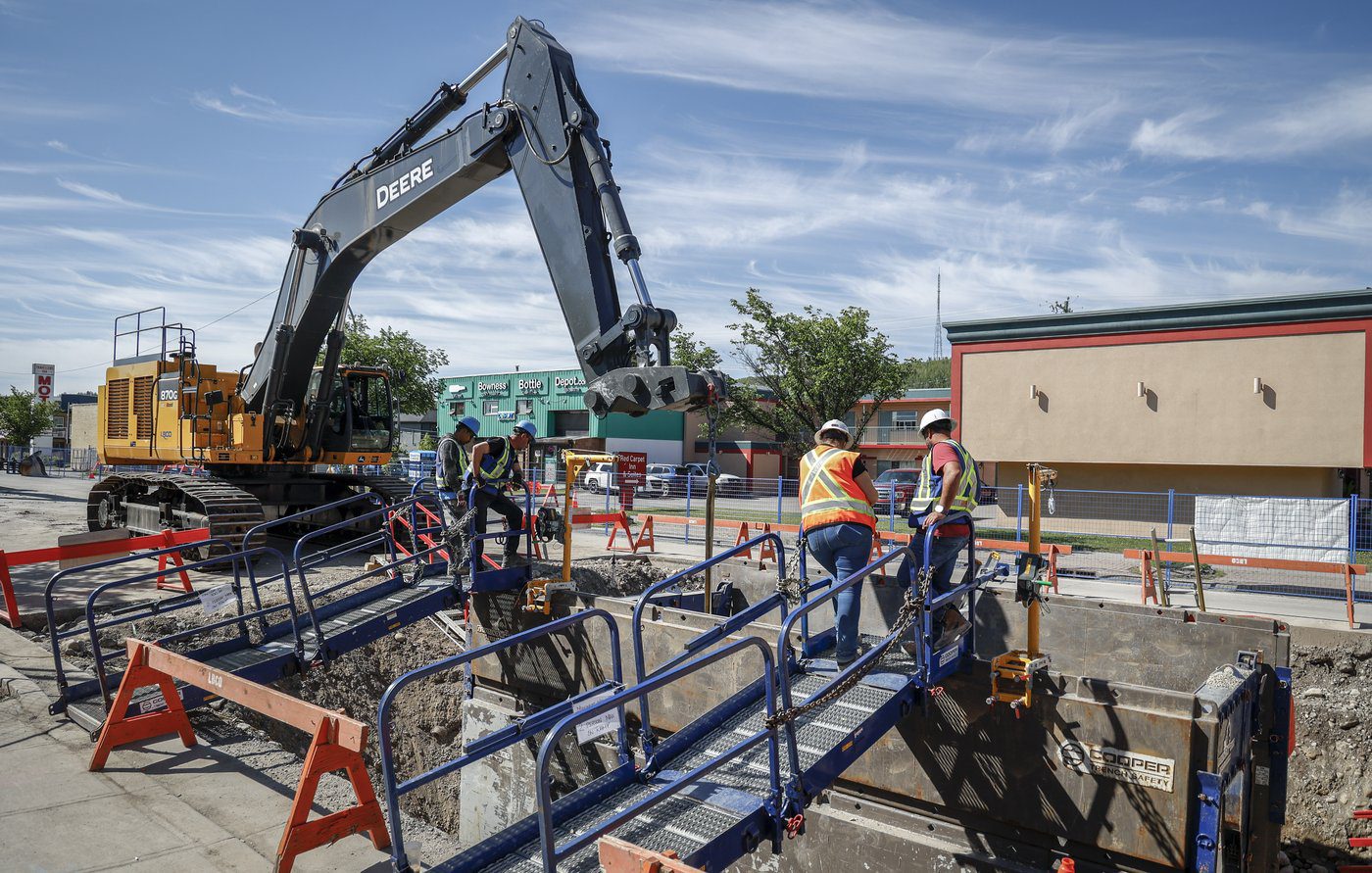CALGARY — Mayor Jyoti Gondek has faced a barrage of criticism as she guided Calgary through a water main break that forced city residents and businesses to limit their water use for over a month.
And while the mayor says the experience has given her a deep appreciation of partnerships with everyone from the provincial government to the private sector, she said she believes Calgarians have learned something too — the true value of what comes out of their taps.
“As horrible as it was for our city and region to deal with, I think it really shone a light on the fact that we have amazing human beings in this city and this region,” she said in an interview with The Canadian Press.
Gondek said she hears people talking about how their habits have changed to better conserve water, and that they’re just happy their water is back on.
“I hear much, much more of that than the negativity, and that’s what keeps me going.”
It all began June 5, after a massive water main supplying 60 per cent of the drinking water for the city ruptured and flooded streets. A directive was issued to have Calgarians cut their indoor water use by 25 per cent with fewer showers and toilet flushes. Car washes and indoor pools were also closed.
Crews scrambled to repair the line and, in the process, found five more weak spots to fix, and the city declared a state of local emergency.
Following lengthy repairs, most restrictions have been lifted in the past week.
Just ahead of July’s Calgary Stampede, the city lifted its state of emergency and gave residents the green light to ease back into normal indoor water usage. Gondek announced more relief Saturday in the form of fewer outdoor water restrictions — including the reopening of outdoor public pools.
A ban on outdoor watering remained in place Saturday, with the system running at reduced capacity to keep enough water in reserve to fight fires and for the replacement line to undergo tests.
Gondek has apologized for communication flubs in the first few days following the infrastructure failure.
“The word catastrophic has not been used lightly to describe what happened here,” said Gondek.
“It was one of those things where people couldn’t see it, and so if they couldn’t see what was wrong, it was hard for them to comprehend that all of us needed to save water.”
Officials couldn’t say Saturday when exactly all the restrictions would be lifted, and Gondek isn’t celebrating yet.
She reiterated that even though the water main has been fixed, the city’s system still needs time to get back to full capacity.
As council plans to appoint an independent panel to investigate how and why the water main ruptured, Gondek said the post-mortem probably won’t assuage her most vocal detractors.
“The folks that are angry, and think it was a conspiracy — I don’t know that anything is going to satisfy them. So what you have to do is keep your head down and do the work and keep your chin up and know that there are very good people in this world who took up the call to action and did a great job in saving water,” she said.
Gondek has praised Alberta Premier Danielle Smith for offering to help the city at the outset of the crisis. She’s lauded Calgary Stampede organizers for trucking water in for the event, and the private sector for its help in fixing the pipe.
And, she has noted that Calgarians managed to cut their water usage by 25 per cent.
The crisis is the latest challenge in a mayoral tenure that has been marked at times by extreme opposition, from an organized effort to recall her from office, to the backlash against city council’s blanket rezoning effort to densify housing.
Recent polls suggest her popularity continues to sink.
Gondek stands by the work of city administration and government, and the importance of demonstrating that the community can come together.
“We don’t always get it right, but we are open to listening to the public and we are moving forward,” she said, adding it is more difficult now than when she was first elected as a councillor in 2017 to have a rational, civil public conversation.
“Everything changed during the pandemic, and the conspiracies and the negativity and the polarization and the vitriol escalated, and it’s at a very dangerous level right now.”
Gondek said she copes with the job in part by getting on her rowing machine early in the morning, when she can, and soaking up the morning news.
“I don’t believe in this principle of water off a duck’s back. You have to feel things in the moment, because once you stop feeling, you’re not going to be serving the public properly,” she said.
“I also have the ability to bounce away from that and say ‘All right, now it’s time to go do this instead.’”
This report by The Canadian Press was first published July 7, 2024.
Lisa Johnson, The Canadian Press





